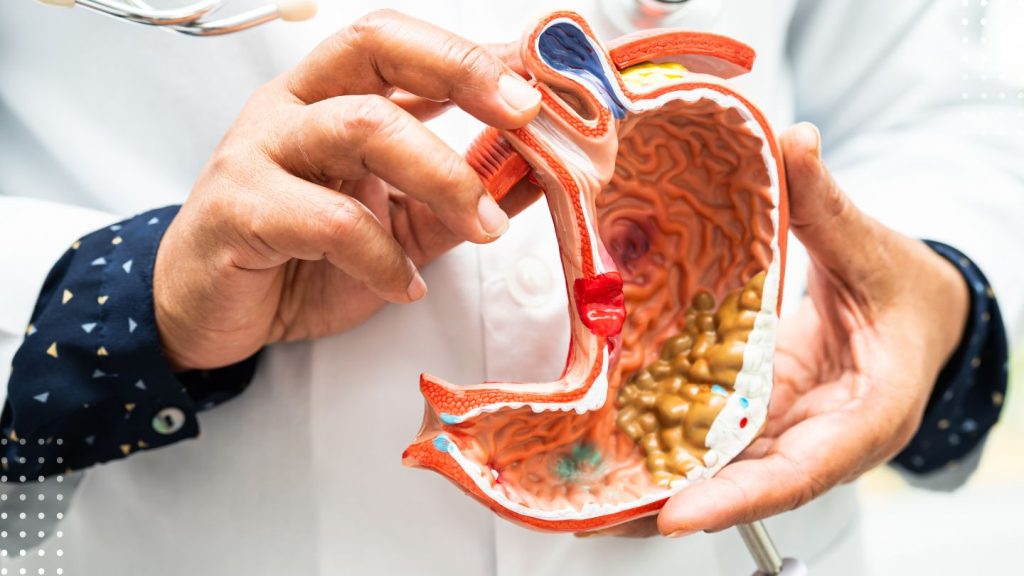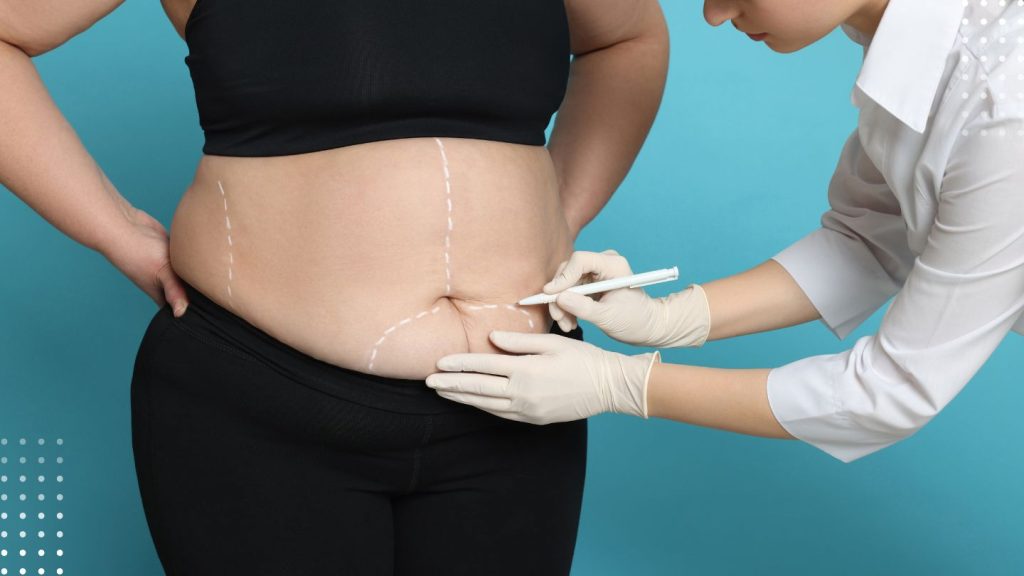Vitamins Needed After Weight Loss Surgery
After weight loss surgery, your body undergoes significant changes in how it absorbs nutrients. While these procedures, like gastric sleeve and gastric bypass, help with effective weight reduction, they can also reduce your ability to absorb essential vitamins and minerals.
To stay healthy, energized, and prevent long-term complications, it’s crucial to follow a personalized supplement plan. Knowing what vitamins to take after bariatric surgery helps ensure you get the nutrients your body needs to recover and thrive.
Why Vitamins Are Essential After Weight Loss Surgery
Bariatric surgery changes how your digestive system processes food, meaning it can no longer absorb nutrients as efficiently as before. It is essential to know which vitamins are needed after weight loss surgery and how they support your long-term recovery. Without proper supplementation, this can lead to vitamin deficiencies that affect your energy levels, bone strength, and overall wellness.
Taking vitamins after weight loss surgery helps maintain:
- Strong bones and teeth
- Healthy red blood cells
- Proper nerve function
- Stable energy and metabolism
Even with a nutritious diet, most patients will need lifelong supplementation. The right weight loss surgery vitamins are a simple yet powerful way to protect your health after bariatric surgery.
What Are the Best Vitamins to Take After Bariatric Surgery?
There isn’t a one-size-fits-all vitamin plan. The exact vitamins after weight loss surgery depend on the type of procedure you’ve had and your lab results. However, several supplements are recommended for most bariatric patients.
1. Multivitamin
A bariatric-specific multivitamin is the foundation of your supplement routine. These multivitamins are specially formulated to meet your new nutritional needs after surgery.
- Choose a bariatric multivitamin rather than a regular over-the-counter brand.
- Avoid gummy vitamins, they often lack iron and other essential nutrients.
- Typically, bariatric multivitamins should be taken once or twice daily.
Taking a high-quality multivitamin after gastric sleeve or gastric bypass helps prevent multiple deficiencies at once, including vitamins A, D, E, K, and folic acid.
2. Vitamin B12
Vitamin B12 is essential for energy, brain function, and nerve health. After bariatric surgery, your body produces less intrinsic factor, a substance needed to absorb B12 properly.
- B12 deficiency can cause fatigue, weakness, or nerve damage.
- It can be taken under the tongue (sublingually), via nasal spray, or through monthly injections.
- It’s a key part of every gastric bypass vitamins list and gastric sleeve vitamins list.
Regular B12 supplementation ensures you maintain focus, energy, and mood stability post-surgery.
3. Vitamin D
Vitamin D supports calcium absorption and bone strength. Many patients are already deficient before surgery, and absorption decreases further afterward.
- Combine Vitamin D with calcium for optimal benefits.
- Dosage typically ranges from 3,000 IU to 6,000 IU daily, depending on bloodwork.
- Essential for both vitamins after gastric sleeve and gastric bypass patients.
A lack of Vitamin D can lead to fatigue, depression, or bone pain, making this supplement a lifelong necessity.
4. Calcium Citrate

Calcium is vital for bone density and heart health. However, after surgery, the body struggles to absorb calcium carbonate, making calcium citrate the preferred form.
- Take 1,200–1,500 mg of calcium citrate per day, divided into smaller doses.
- Never take calcium at the same time as iron, it can reduce absorption.
- Supports long-term bone health and prevents osteoporosis.
Calcium citrate is one of the most important vitamins to take after gastric sleeve surgery due to its easy absorption and bone-protecting benefits.
5. Iron
Iron is critical for producing healthy red blood cells and preventing anemia. Because the stomach’s acid levels decrease after bariatric surgery, iron absorption becomes more difficult.
- Women, in particular, may need higher doses of iron after surgery.
- Take iron separately from calcium for best results.
- Look for a bariatric-specific iron supplement that includes Vitamin C for absorption.
Iron is a must-have in any gastric sleeve vitamins list or gastric bypass vitamins list.
6. Thiamine (Vitamin B1)
Thiamine, also known as Vitamin B1, helps the body turn food into energy and supports nerve function. Rapid weight loss, vomiting, or poor eating habits after surgery can cause a deficiency.
- Early deficiency symptoms include fatigue, confusion, and muscle weakness.
- Most bariatric multivitamins include B1, but separate supplementation may be needed.
Taking B1 regularly can prevent serious nerve-related issues in the future.
Why You Need a Consistent Vitamin Routine
Taking vitamins after gastric sleeve or gastric bypass is not a temporary step, it’s a lifelong commitment to maintaining your health. Consistency helps you:
- Stay energized and focused
- Support wound healing and metabolism
- Prevent complications like anemia or neuropathy
- Maintain muscle strength and bone density
Skipping doses can quickly lead to vitamin deficiencies, even if you feel fine at first. Following your doctor’s vitamin schedule is key to long-term success.
How to Build Your Bariatric Vitamin Routine
Creating a vitamin routine after surgery doesn’t have to be complicated. Follow these steps for best results:
- Take vitamins daily – Make it part of your morning or bedtime routine.
- Space out your supplements – Take calcium and iron at different times.
- Stay hydrated – Water supports nutrient absorption.
- Get regular bloodwork – Every 3–6 months, check your vitamin levels with your bariatric provider.
For the first few months, chewable or liquid vitamins may be easier to digest. As your stomach heals, you can transition to capsules or tablets.
Common Mistakes to Avoid with Bariatric Vitamins

Even the best vitamins after gastric sleeve or bypass won’t help if you take them incorrectly. Avoid these common errors:
- Using regular pharmacy vitamins instead of bariatric-specific ones
- Taking all supplements at once (some block each other’s absorption)
- Forgetting to separate iron and calcium doses
- Skipping follow-up lab appointments
These simple habits can make a major difference in your recovery and long-term wellness.
Recognizing Vitamin Deficiency Symptoms
Skipping your prescribed supplements can have serious health effects over time. Understanding the potential risks of not taking bariatric vitamins after surgery helps prevent nutrient deficiencies before they occur. Even with regular supplementation, your needs may change over time. Watch for signs of vitamin deficiency, such as:
- Persistent fatigue or weakness
- Hair thinning or brittle nails
- Pale skin or shortness of breath
- Tingling in hands or feet
- Muscle cramps or bone pain
If you experience any of these, contact your bariatric care team promptly to adjust your vitamin plan.
Choosing the Right Bariatric Vitamins
When choosing vitamins after weight loss surgery, quality matters. Look for brands specifically formulated for bariatric patients. These ensure proper nutrient levels and easy digestion. Some patients wonder if gummy vitamins are a suitable option after bariatric surgery. While they may seem convenient, they often lack essential nutrients like iron and B12.
- Prioritize chewable or capsule forms for better absorption.
- Ensure your supplements contain adequate iron, calcium, B12, and Vitamin D.
- Review your plan with your doctor or registered dietitian for the best results.
Your care team can personalize your gastric sleeve vitamins list based on your surgery type and individual lab results.
Conclusion
Taking the right vitamins after weight loss surgery is crucial for long-term health and success. Whether you’ve had a gastric sleeve or bypass, consistent supplementation ensures your body gets the nutrients it needs to heal, stay strong, and sustain your results. Always follow your bariatric team’s recommendations and schedule regular lab tests to track your progress.
For expert, compassionate guidance, trust the Lenox Hill Bariatric Surgery Program, a leading name in New York City bariatric surgery. Our specialists provide individualized post-surgery nutrition plans, ongoing support, and advanced bariatric care tailored to your goals. Learn more about the gastric sleeve in NYC or schedule a consultation by contacting us today.
Frequently Asked Questions
What are the best vitamins to take after bariatric surgery?
The essentials include a bariatric multivitamin, calcium citrate, iron, Vitamin D, and Vitamin B12.
Do I need to take vitamins forever after surgery?
Yes. Lifelong supplementation is necessary to maintain healthy nutrient levels.
Can I take gummy vitamins?
No. Gummy vitamins often lack iron and other key nutrients, making them unsuitable for bariatric patients.
How long after surgery should I start vitamins?
Most surgeons recommend beginning supplements within a week or two after surgery, once you’re cleared for liquids.
What happens if I skip my vitamins?
Skipping vitamins can cause fatigue, nerve problems, and serious nutrient deficiencies. Always follow your prescribed plan.



























